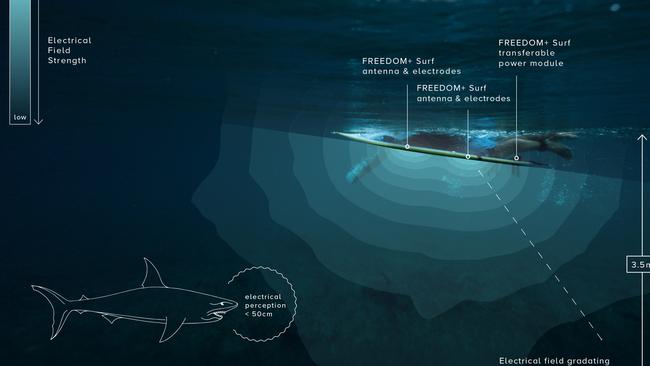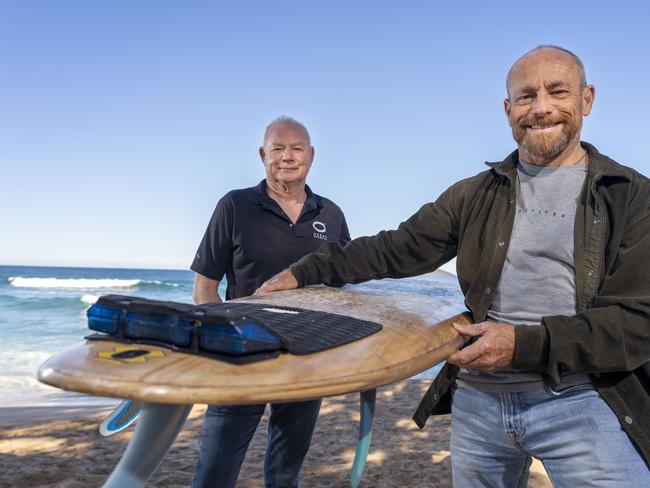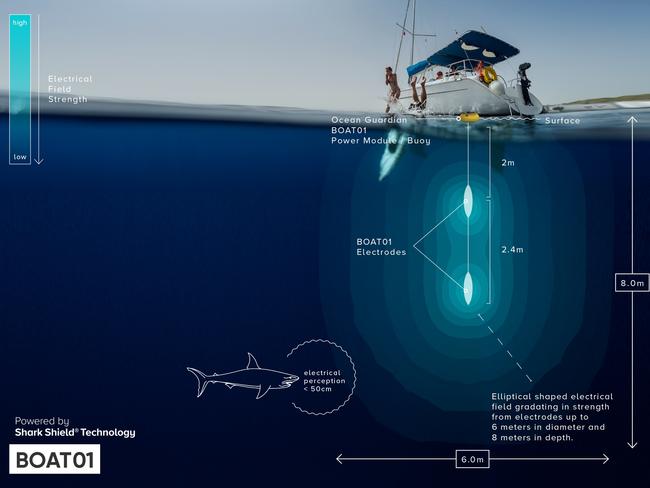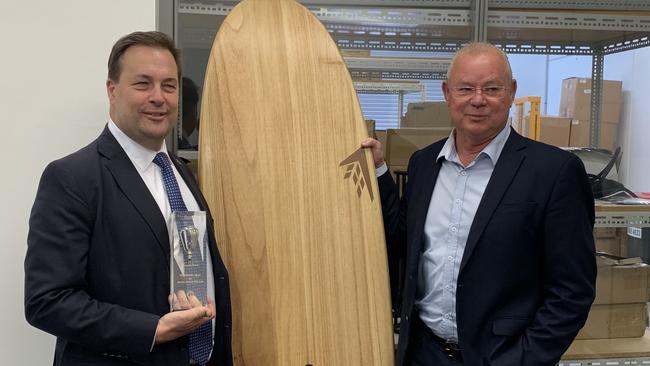Push for electric shark barrier on northern beaches, via Ocean Guardian
There is a push to trial a shark barrier on the northern beaches, which works by emitting electrical pulses. The concept, which has the backing of both a northern beaches MP and a world champion surfer, has been described as “good for the environment” when compared to shark nets.

Manly
Don't miss out on the headlines from Manly. Followed categories will be added to My News.
A company producing electrical shark deterrent technology that can fit on surfboards says it wants to take the next step and build a virtual barrier in the ocean to protect swimmers.
The technology – which emits an electrical pulse that is sensitive and uncomfortable for sharks – would be an alternative to traditional shark nets, which inadvertently kills hundreds of sharks and other marine animals every year.

The northern beaches based company Ocean Guardian, in Warriewood, says the technology is scientifically proven in many studies and is almost 100 per cent safe.
In one study the University of Western Australian Ocean Institute found 41 “white sharks were effectively deterred”, staying an average of 1.3m away from a baited canister with the electrical pulse device attached.
CEO Lindsay Lyon said he is seeking funding of up to $2.3m to run a pilot of the beach barrier and ideally he wanted to test it somewhere like Ballina or even Manly.
He’s also won the backing of an MP who wants to see it piloted on the northern beaches.
“We have the Shark Shield technology on surfboards, but we would like to scale it up,” Mr Lyon said.
“The technology has been around for 20 years and the South Africans have been using the technology to build a beach barrier with success.
“So the concept of a beach barrier has been proven and piloted.
“Now we want to do that here.”

The beach barrier works via a cable on the surface kept afloat by buoys, with cables dropping down like a curtain every three to six metres, emitting electrical pulses.
The cable on the surface is secured either end by anchors.
Mr Lyon said it would resolve the problem of shark nets accidentally killing marine life and is more effective.
He said sharks – including Great Whites – have highly sensitive electrical receptors in their snouts used for finding food.
The technology causes spasms turning the sharks away.

But as humans and fish are without these receptors, it has a negligible effect on them.
“It won’t harm the sharks, but it will turn them away, while it will have no effect on other sea creatures.”
He said up close to the receptors it is like touching an electric fence.
The idea has won the support of Mackellar MP Jason Falinski who has written to Minister the Environment Sussan Ley and the Prime Minister Scott Morrison about the technology.
He said he would like it rolled out at a beach on the peninsula.
“When the community goes to the beach, they want to know they are safe from sharks. Historically, nets have been the tool to do that,” Mr Falinski said.
“However, there is new technology emerging which can do the job better and cause less harm to the marine environment.”
“I would welcome it’s trial on the northern beaches, replacing shark nets with this product would be good for the environment.”
He said Ocean Guardian’s “product has been proven to work, it’s safe for swimmers and marine life”.
The technology already has the support of the WA Government which gives any surfer or swimmer resident in the state a $200 rebate if they buy protective personal devices with this technology.
Surfing legend Tom Carroll is an ambassador for the company and helped design the $499 surfboard device so it doesn’t interfere with surfing.

